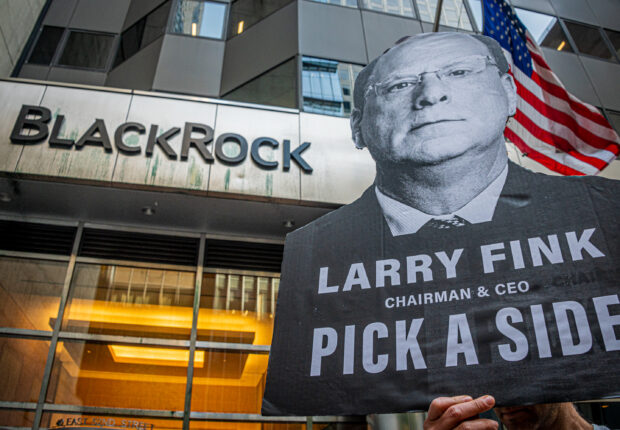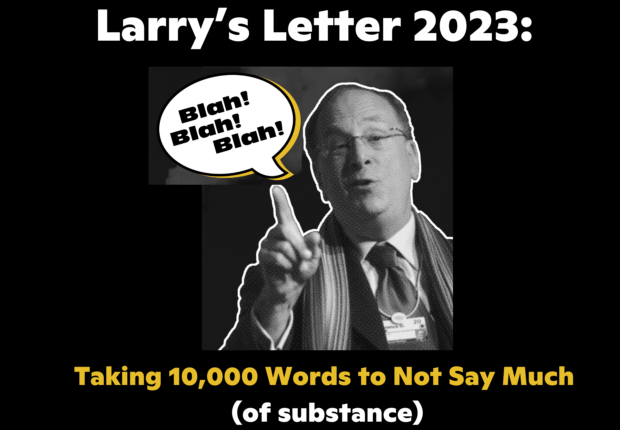Did the world’s largest asset manager commit to full net zero across all of its managed assets by 2050?
Last week, Peter Eavis and Clifford Krauss of the New York Times shared what may turn out to be a significant statement from BlackRock. Ed Sweeney, a spokesman for BlackRock, told the reporters that BlackRock’s “ambition” was to have “net zero emissions across our entire assets under management by 2050.”

Neither Larry Fink’s January letters to CEOs and clients, nor the climate memo that BlackRock released in early February spelled out this “ambition”. In those documents, BlackRock’s focus was on BlackRock’s expectations of other companies – how they should consider managing “the impacts that [climate] risks have on their business and demonstrate preparedness to operate in a low-carbon economy.”
In this revelation, which is buried inside an article about corporate commitments writ large, BlackRock seems to be putting a stake in the ground about its own investments. The problem is, it’s still being cagey. BlackRock has nearly $9 trillion under management, and that includes significant investments in fossil fuels, including $84 billion invested in coal alone. Additionally, the vast majority of its investments – including its investments in fossil fuels – is invested in passive index funds, which so far the firm has said it can’t or won’t do much about beyond shareholder engagement.
If BlackRock actually has an official commitment to net zero emissions across its entire assets under management (AUM) by 2050, not just an ‘ambition’ relayed by a spokesperson to the New York Times, it should make that clear with a detailed policy on its website that includes short and medium term goals for how it will reach this ambition.
How does BlackRock expect to achieve net zero across its entire AUM, and what will it do with companies in its passively managed portfolios that can’t or won’t transition accordingly? It has said that it may use its vote on Board Directors & shareholder resolutions, and potentially divest companies from its active funds, but what about companies in passive funds that can’t be cajoled into transitioning through engagement?
And if BlackRock is truly serious about achieving its 2050 net zero “ambition”, it needs more serious action right now. That starts with excluding fossil fuels from its active funds, cleaning up its green-washed “ESG” funds, voting out directors at big polluters with no transition plans, and more.
Was this line just more rhetoric? Or does it signal a real change in BlackRock’s approach? We look forward to hearing more from the world’s largest asset manager in the coming weeks.

